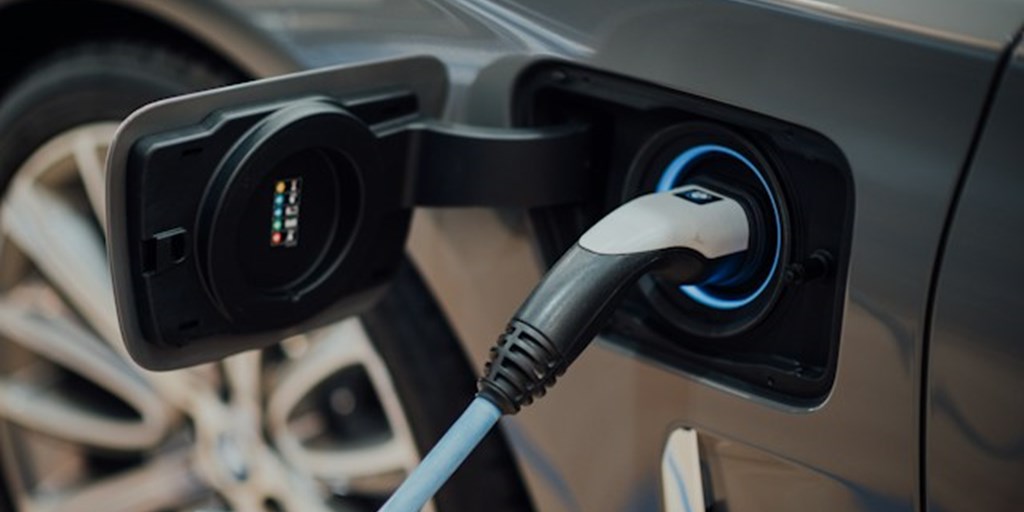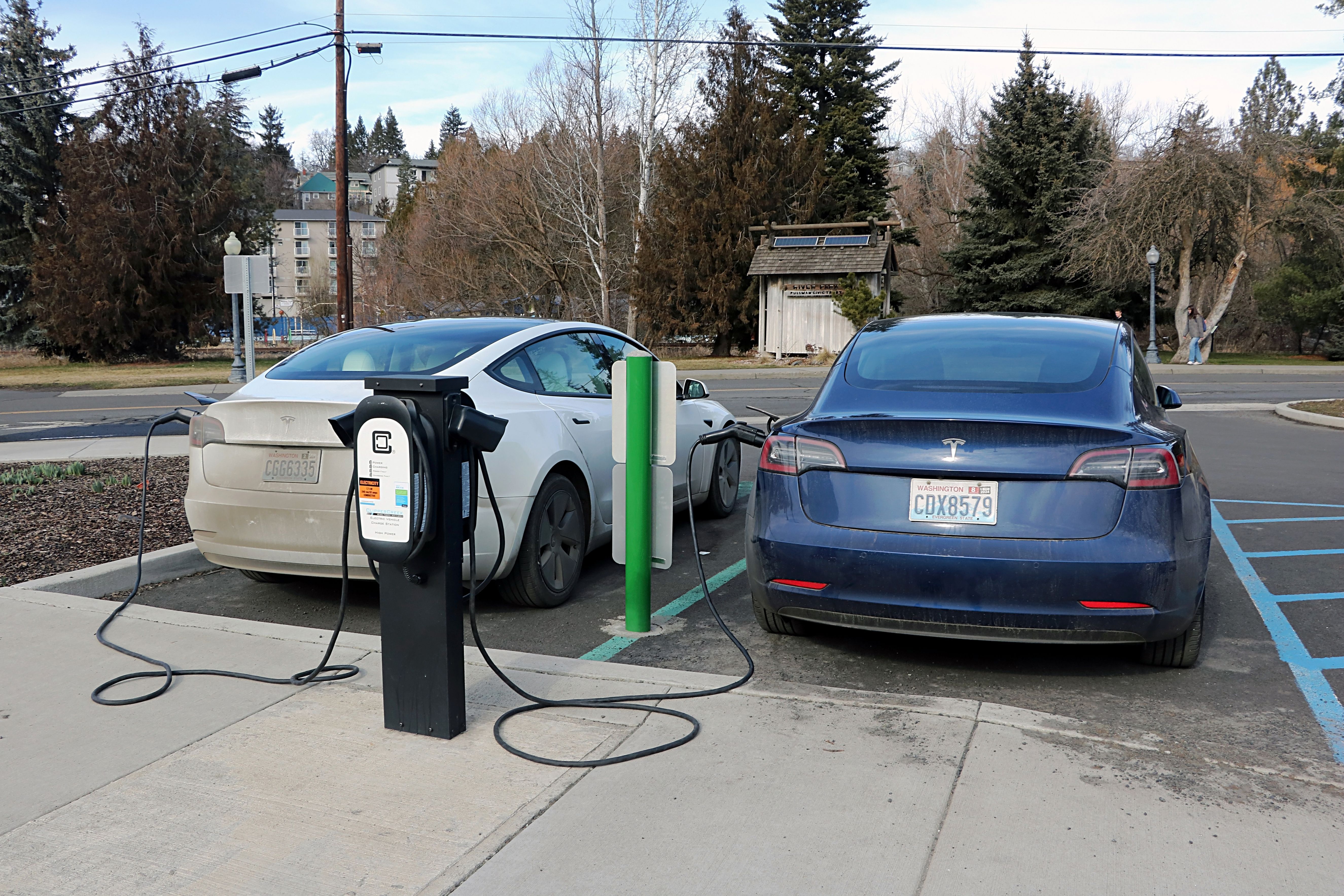The Future of Electric Vehicles and Why You Should Buy EV Charging news Now
The Future of Electric Vehicles and Why You Should Buy EV Charging news Now
Blog Article
New Advancement in EV Charging: Just How the Industry Is EVolving to Meet Demand
As the electrical vehicle (EV) market remains to increase, the charging framework is undertaking substantial makeovers to attend to the rising demand. Secret growths in ultra-fast billing innovations, paired with clever grid assimilation, are improving the landscape. Advancements in battery technology pledge enhanced efficiency and sustainability. However, the pursuit of global billing standards stays a critical variable in allowing seamless customer experiences and widespread fostering. The ramifications of these advancements elevate crucial inquiries regarding the future of EV charging and its duty in the wider power ecosystem.
Development of Billing Framework
The quick growth of electrical automobile (EV) billing facilities is a crucial component in promoting the widespread adoption of electric flexibility. As governments, personal business, and customers increasingly acknowledge the value of lowering carbon emissions, investments accountable networks have actually risen. This infrastructure growth is vital to minimize range anxiety, making sure that EV users have hassle-free accessibility to charging terminals.
Significant innovations accountable terminal modern technology and deployment techniques have emerged. Urban areas are seeing an expansion of public charging stations, while rural regions are slowly being integrated into the billing network. Additionally, collaborations in between vehicle producers and charging companies are ending up being more typical, assisting in the facility of extensive networks that enhance user experience and accessibility.
Additionally, the integration of renewable resource resources right into charging terminals is gaining energy, advertising sustainability in the EV ecosystem. This change not just sustains environmental objectives but likewise aligns with the climbing demand for eco-friendly power options among customers.
Ultra-Fast Charging Technologies
Ultra-fast charging innovations represent a substantial leap onward in the EV charging landscape, making it possible for electric automobiles to charge in a fraction of the time contrasted to conventional charging techniques. These innovations commonly deliver power degrees exceeding 150 kW, with some systems rising to 350 kW or even more, dramatically minimizing billing times to as little as 15-30 minutes for a significant fee.
Trick enabling technologies consist of advancements in battery chemistry, power electronics, and thermal monitoring systems. High-capacity batteries with boosted thermal stability allow for faster charging without overheating. EV Charging news. Additionally, advancements accountable framework, such as liquid-cooled cable televisions and modular charging terminals, help with effective power transfer, boosting the total customer experience
Major auto manufacturers and technology firms are proactively purchasing ultra-fast charging networks, identifying the vital duty they play in overcoming variety anxiety and accelerating the adoption of electrical vehicles. As these technologies end up being much more extensively offered, the EV market is expected to witness substantial development, making electrical movement a much more attractive alternative for customers. Generally, ultra-fast charging innovations are crucial in forming the future of lasting transport, leading the way for an extra effective and substantial charging ecosystem.
Smart Grid Combination

Through need feedback approaches, clever grid systems can readjust charging schedules based on grid conditions and power prices. Throughout durations of high demand, billing can be postponed to off-peak hours, resulting in lower expenses for consumers and lowered pressure on the grid. Additionally, vehicle-to-grid (V2G) innovations allow EVs to release energy back right into the grid, enhancing and providing secondary solutions grid stability.
Assimilation with eco-friendly energy sources further improves the sustainability of EV charging. By aligning billing tasks with durations of high solar or wind generation, smart grids promote a greener billing infrastructure. Inevitably, smart grid assimilation not only sustains the expanding demand for EVs however additionally adds to a much more resilient and lasting power future, positioning the industry for long-term success.
Battery Technologies
Among the quick advancement of electric vehicles (EVs), battery technologies stand at the leading edge, driving developments in sustainability, effectiveness, and efficiency. As the demand for EVs rises, researchers and manufacturers are concentrating on boosting battery modern technologies to deal with obstacles such as array anxiousness and billing times.
Lithium-ion batteries stay the most widely used technology, yet brand-new products and chemistries are emerging to improve power thickness and longevity. Solid-state batteries, for example, assure greater power storage space capacity and boosted safety and security by changing liquid electrolytes with strong ones. This change could substantially minimize the threat of fire and raise the lifespan of batteries.
Additionally, improvements in battery recycling procedures are essential for sustainability. Firms are developing methods to recover beneficial products like lithium, cobalt, and nickel from used batteries, advertising a circular economic climate and lowering ecological influence.

Global Charging Specifications

Efforts are underway look at this now to develop worldwide billing standards that help with compatibility amongst different EV models and charging stations. Organizations such as the International Electrotechnical Compensation (IEC) and the Culture of Automotive Engineers (SAE) are functioning collaboratively with automotive makers and power service providers to create detailed standards. EV Charging news. These criteria aim to enhance the charging process, decrease the requirement for several adapters, and improve customer experience
Moreover, standardization can significantly reinforce the development of the charging network, as it motivates investment by making facilities advancement extra reliable and foreseeable. As the EV market grows, a unified strategy to billing requirements will certainly be essential for making certain that customers can bill their cars comfortably and reliably, thus supporting the more comprehensive transition to sustainable transport.
Final Thought
The electrical lorry billing market is undertaking significant makeover to resolve the surging demand for lasting transportation. Innovations in billing framework, ultra-fast innovations, wise grid assimilation, and cutting-edge battery click options are essential in boosting user experience and functional performance. The quest of worldwide billing requirements is crucial for ensuring interoperability throughout various areas and systems. Collectively, these growths position the industry to sustain a wider adoption of electrical cars, eventually contributing to an extra sustainable future.
Urban areas are seeing an expansion of public billing stations, while rural regions are slowly being integrated right into the billing network. Furthermore, advancements in charging facilities, such as liquid-cooled cable televisions and modular charging terminals, facilitate reliable power transfer, enhancing the general individual experience.
Generally, ultra-fast billing technologies are essential in forming the future of sustainable transportation, paving the way for a much more extensive and efficient billing community. - EV Charging news
By straightening charging tasks with durations of high solar or wind generation, clever grids advertise a greener billing infrastructure.Efforts are underway to establish worldwide charging standards that assist in compatibility among various EV models and charging terminals.
Report this page